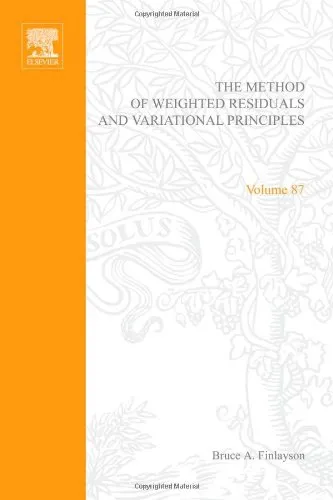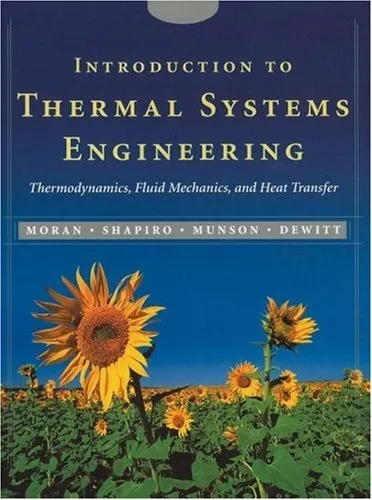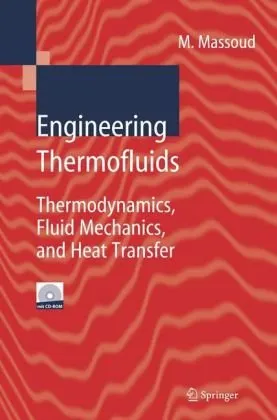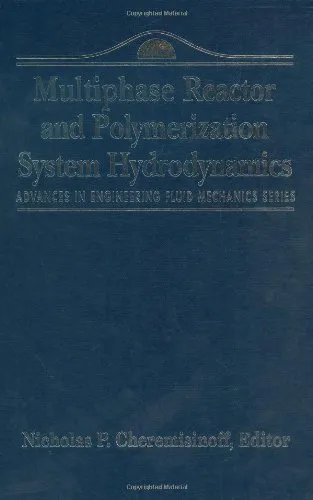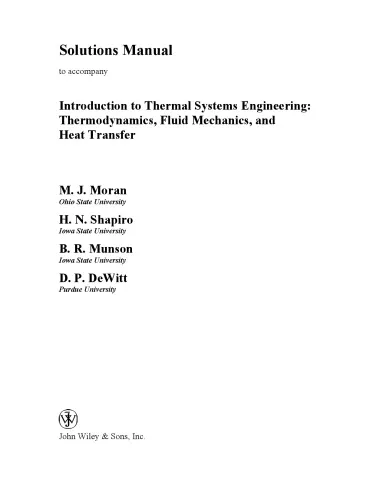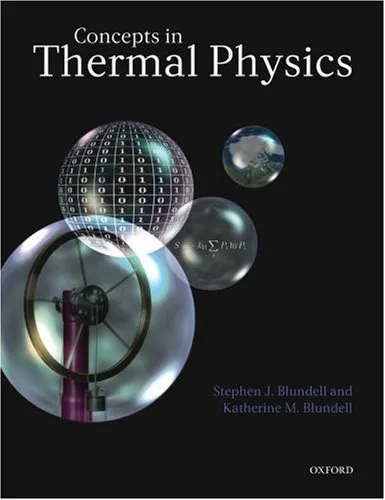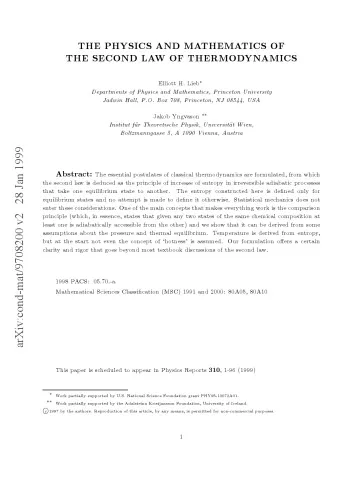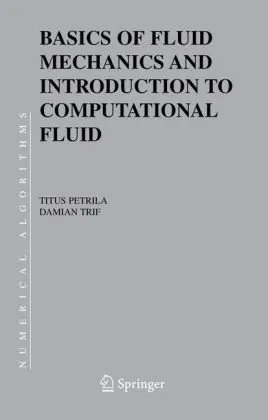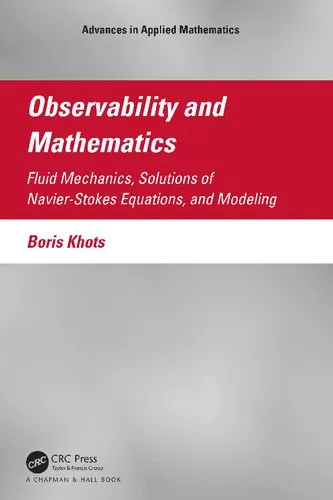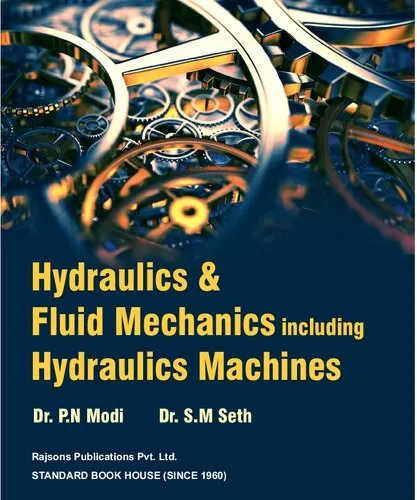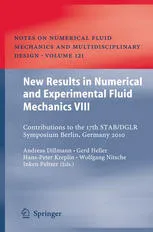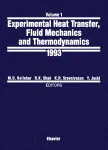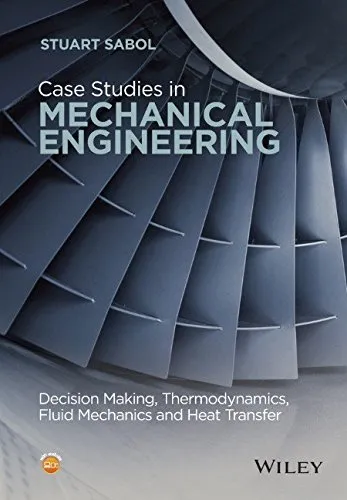The Method of Weighted Residuals and Variational Principles: With Application in Fluid Mechanics, Heat and Mass Transfer
4.5
Reviews from our users

You Can Ask your questions from this book's AI after Login
Each download or ask from book AI costs 2 points. To earn more free points, please visit the Points Guide Page and complete some valuable actions.Related Refrences:
Introduction to "The Method of Weighted Residuals and Variational Principles: With Application in Fluid Mechanics, Heat and Mass Transfer"
"The Method of Weighted Residuals and Variational Principles" is a comprehensive and authoritative text that provides an in-depth exploration of the mathematical and computational techniques used to address complex problems arising in fluid mechanics, heat, and mass transfer. Authored by Bruce A. Finlayson, this book bridges the gap between theoretical understanding and practical problem-solving, making it a foundational resource for engineers, mathematicians, and applied scientists.
At its core, the book delves into the methodology of weighted residuals and variational principles, two indispensable tools in the field of applied mathematics and engineering. By presenting a systematic approach to developing approximate solutions for boundary value problems, this text empowers readers to handle intricate systems that arise in real-world applications. Whether you're a graduate student, researcher, or industry professional, the methodologies outlined in this book can be tailored to tackle challenges across a variety of fields.
The book emphasizes a strong balance between mathematical rigor and practical utility. Theoretical formulations are paired with practical applications, ensuring that the reader gains both conceptual clarity and skill in implementation. Highlighting real-world relevance, it includes examples rooted in fluid mechanics, heat conduction, and diffusion, ensuring a hands-on understanding of how these principles operate in engineering contexts.
Detailed Summary of the Book
This book serves as a roadmap for understanding and applying weighted residual methods and variational principles in solving partial differential equations (PDEs). These equations govern many scientific and engineering phenomena, including the mechanics of fluids, energy transfer through heat, and mass transport through diffusion.
The content begins with an introduction to weighted residuals, breaking down its core concepts and building up to more advanced techniques, such as collocation, subdomain, least squares, and Galerkin methods. Following this, the text transitions into a deep dive on variational principles, offering insights into the calculus of variations and how these mathematical frameworks offer alternative methods for solving boundary and initial value problems.
One of the book's most compelling features is its emphasis on applications. The author systematically applies the discussed methods to fluid dynamics, describing their role in simulating flows and capturing the fundamental behavior of fluid systems under various conditions. Similarly, applications to heat conduction and mass transfer are explored in detail, providing readers with actionable workflows suited to different engineering contexts.
Key Takeaways
Here are some key takeaways from this classic text:
- A comprehensive understanding of weighted residual methods and variational principles.
- Step-by-step guidance on solving PDEs using a range of approximation methods.
- In-depth application of these techniques in fluid mechanics, heat transfer, and mass transport.
- Theoretical and practical frameworks to enhance readers' problem-solving skills.
- Detailed mathematical examples and exercises for hands-on learning.
Famous Quotes from the Book
Bruce A. Finlayson's writing beautifully captures both the elegance and complexity of applied mathematics. Here are some memorable quotes from the book:
"The weighted residual approach allows us to reduce a complex, infinite-dimensional problem into a manageable finite-dimensional framework that still captures the essence of the phenomenon."
"In engineering and science, it is rare to find problems with exact solutions; approximation methods become the cornerstone of progress."
Why This Book Matters
This book is more than just a mathematical reference—it is a pivotal educational resource that equips readers with the tools necessary to solve real-world engineering problems. By adopting a highly systematic and analytical approach, it lays the foundation for developing computational models that can reshape industries.
In an age where simulation and modeling play a vital role in engineering design and optimization, understanding weighted residuals and variational principles is indispensable. Engineers can apply these methods to design safer buildings, optimize heat exchange systems, and develop efficient fluid delivery systems for industries ranging from energy to chemical processing. This book demystifies these critical concepts, ensuring that readers not only learn but also confidently apply them to their own challenges.
By shedding light on both theoretical nuances and practical applications, Bruce A. Finlayson's work remains an essential and timeless contribution to the field.
Free Direct Download
You Can Download this book after Login
Accessing books through legal platforms and public libraries not only supports the rights of authors and publishers but also contributes to the sustainability of reading culture. Before downloading, please take a moment to consider these options.
Find this book on other platforms:
WorldCat helps you find books in libraries worldwide.
See ratings, reviews, and discussions on Goodreads.
Find and buy rare or used books on AbeBooks.
1320
بازدید4.5
امتیاز0
نظر98%
رضایتReviews:
4.5
Based on 0 users review
Questions & Answers
Ask questions about this book or help others by answering
No questions yet. Be the first to ask!
